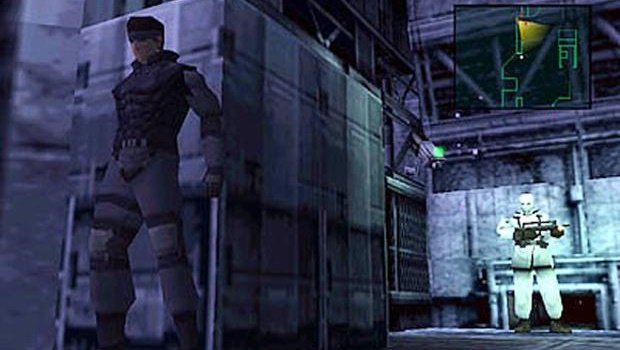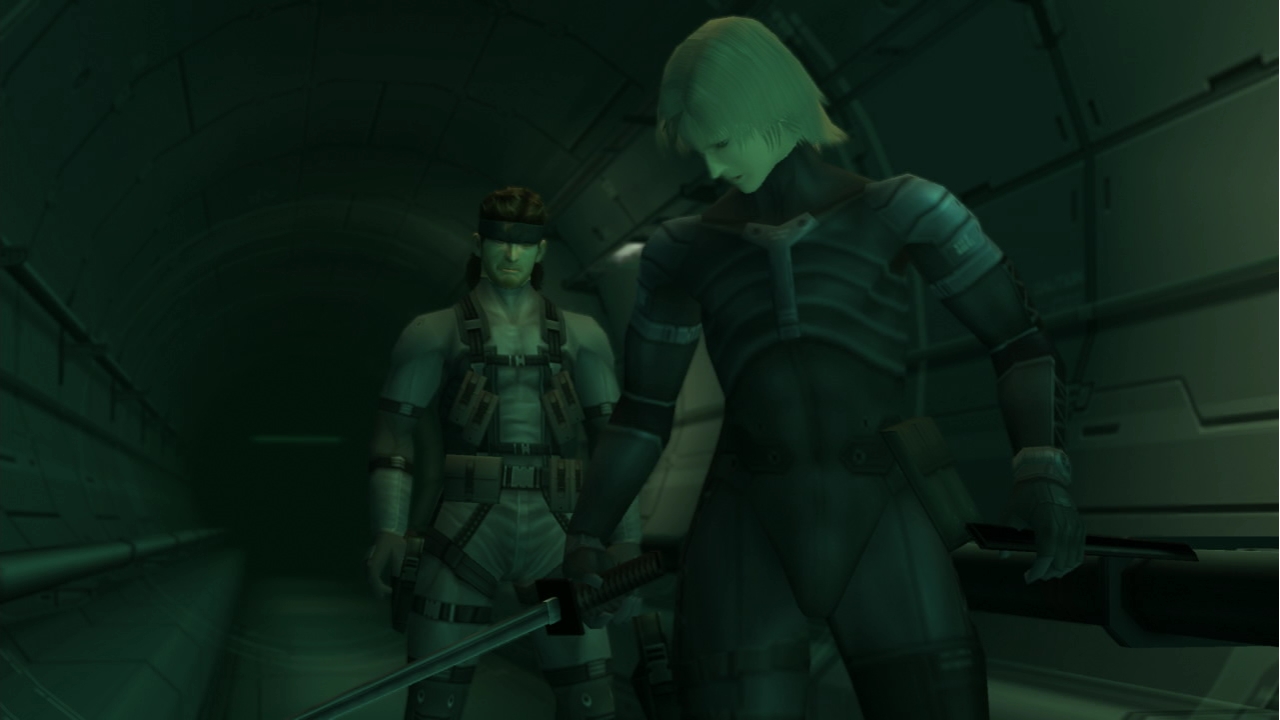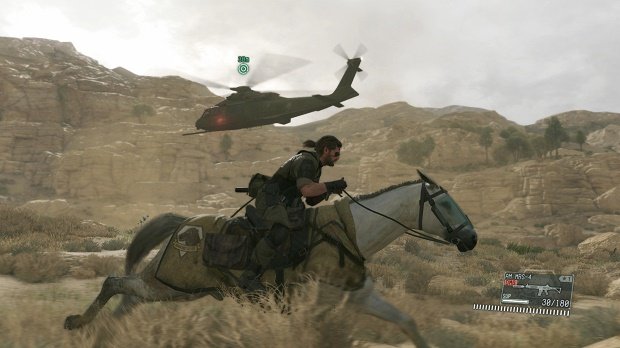Metal Gear is Hideo Kojima, and it won't be the same when he's gone
I was 14 when I first heard of Metal Gear Solid. It was the summer of 1999, and my best friend asked me if I'd ever played it. When I told him no, he suggested that we do something truly absurd: that we go down to the local Blockbuster Video, we rent it, and we play it all in one night.
And that's exactly what we did. We started at around seven in the evening and didn't get finished until well after the sun had risen. It might seem hyperbolic to say that Metal Gear Solid changed my life, but honestly, it kinda did. As a kid weaned on Super Mario Bros. and Sonic the Hedgehog, I knew that games were something special to me, something I'd wanted to be a part of but not really sure exactly what that meant. But for the first time in my entire life, a game actually bothered to challenge my own perception of reality.

Metal Gear Solid may be filled with rad anime bullshit like cyborg ninjas and ridiculous walking battle tanks, but it also features quiet moments that explore the effects of war and nuclear proliferation, of the evils governments can perform on their own citizens. One minute series hero Solid Snake is wrapped up in a boss battle that seems insurmountable until the player plugs their controller into the second port, and the next he's discussing the ethical implications of human cloning with his evil twin brother. For a 14-year-old kid, Metal Gear Solid was a big deal, and it opened my eyes to a wider world filled with problems that we as a society are doing a piss-poor job at solving.
So of course I was excited for Metal Gear Solid 2, a game that looked to be better than the first in every conceivable way. And of course, series creator Hideo Kojima knew how excited everyone was. He knew what we wanted: a bigger game, better graphics, more Solid Snake. And he played up those expectations perfectly, showing us what we all wanted to see then yanking it all away. Instead of playing as Solid Snake, we were given Raiden, a whiny, inexperienced rookie trained on VR simulations and sent in on his first real mission at an off-shore decontamination facility.
I was livid. "Who the hell is this asshole?" I probably exclaimed when Raiden removed his mask atop Big Shell. Snake was on the cover of the goddamned box, and now I have to play the rest of this game as this loser? I might have screamed Kojima's name to the heavens in rage on my first playthrough, but time passed. I grew older. I began to look closer. And I realized the full extent of Kojima's brilliance. Metal Gear Solid 2 is all about misinformation, about how information pools and collects in our digital age, and how easy it is to create and distribute lies and have them become fact. He saw the potential effects of social media, of our ability to preserve data, no matter how insignificant, and how our beliefs can influence our perceptions and judgement, and he used it against us in the most gutsy bit of marketing manipulation I've ever seen.

When you're playing a Metal Gear game, you're not just playing the bits of code on a disc - you're taking a step into the mind of Hideo Kojima, and playing the game isn't limited to those moments where you have a controller in your hand. When you're watching an interview of a mysterious game developer covered in bandages, you're playing a Metal Gear game. When you're combing through trailers trying to discern what's real and what's fiction, you're playing a Metal Gear game. When you're reading a copy of Moby Dick to see why Kojima used its name as the moniker for the fictional studio supposedly behind The Phantom Pain (something I'm seriously considering doing), you're playing a Metal Gear game. To be invested in Metal Gear is to be a willing participant of the greatest, most impressive con in video game history. And none of it would be possible without Kojima's auteur hand to guide it.
But playing Metal Gear isn't just about wanting to see what new trick Kojima's cooked up. It's also about wanting to follow Kojima's growth as a developer. It's about watching how this melange of sci-fi, horror, history, philosophy, and Eastern and Western pop culture somehow coalesce into a cohesive whole. When you look at Metal Gear Solid's timeline, you're able to see how much care and reverence he holds for the universe that he's created, but you can also see how much he wants to move on and attempt to create something else. Every Metal Gear is supposedly his last, but he continues to return to guide the series' progress, and that weariness seeps into its very narrative. Try to play Metal Gear Solid 4 without noticing how Kojima attempts to throw the kitchen sink at you, tying up all of the series' copious narrative threads with varying degrees of success. "Here," he's saying. "Here's everything you've ever wanted explained, served up on a silver platter. Can I be done now?"
Weekly digests, tales from the communities you love, and more
That's what The Phantom Pain, Kojima's (assuredly) final entry in the Metal Gear Solid saga, feels like, at least from a gameplay perspective. Combining the series' trademark stealth gameplay, Peace Walker's base-building, MGS4's improved gunplay, Snake Eater's enigmatic Big Boss, and blowing it out to open-world proportions, The Phantom Pain is Kojima's attempt to make the Metal Gear to end all Metal Gears. It's still too early to make a judgement either way, but after spending over 16 hours with it I can safely say that it is most certainly A Hideo Kojima Game.

But after The Phantom Pain, that's it. Kojima is out at Konami, and the company that owns one of my favorite video game franchises will reevaluate the future of the series. I'm worried about what a Kojima-less Metal Gear will look like. It's true that Kojima hasn't worked on every Metal Gear game, but he's maintained a role as producer and consultant on nearly every one. You can even see his stamp in non-canonical games like card-battler Metal Gear Acid, the hyper-violent Raiden apology Metal Gear Rising, and the surprisingly fantastic Game Boy Color adaptation of Metal Gear Solid. And you can tell when he's not there, as in the sub-par US-only NES release, Metal Gear 2: Snake's Revenge. Even if he didn't have a direct hand in shaping each game, you can still find his fingerprints in the overall design and tone.
Perhaps Kojima has had a chance to instruct the team on how best to continue the series without him, and all will be fine. Besides, Kojima's antics aren't cheap. Building a huge LA studio, hiring actors to play fictional game developers, designing new engines, delaying games - all of this costs money, money that Konami has probably (and honestly, justifiably) decided isn't worth spending. Konami intends to keep Metal Gear going without him, but there's a large part of me that hopes Metal Gear dies when Kojima leaves, that The Phantom Pain is Metal Gear's last gasp. Metal Gear just won't be the same without him, and this game looks like it'd be a hell of a way to go.



